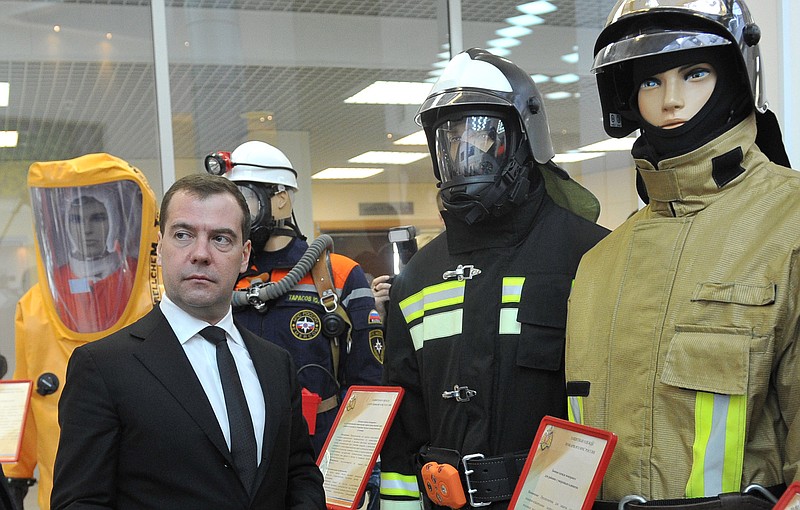MOSCOW (AP) - Russia pulled out of an anti-crime accord with the United States on Wednesday in a move the U.S. called "self-defeating," the latest sign of rising tensions between Moscow and Washington.
Prime Minister Dmitry Medvedev signed an order to scrap the 10-year-old agreement "because it was no longer relevant," his office said.
The agreement covered fighting terrorism, corruption and cross-border crimes such as drug smuggling and human trafficking.
Alexei Pushkov, head of Russia's parliamentary foreign affairs committee, said the decision reflected Russia's ability to manage its affairs without outside help.
"Russia is changing the format of its relations with the U.S.," he tweeted. "We are ending our dependence on "the country No. 1.'"
The Foreign Ministry expressed gratitude to the U.S. for providing $12 million in aid for crime-fighting projects under the accord, but said Moscow no longer needs such assistance.
"From a recipient of Western aid for anti-crime projects, Russia has turned into a donor for such programs in Central Asian nations and Afghanistan," it said in a statement, adding that Moscow was ready to continue cooperation with the U.S. in fighting crime, including drug-trafficking.
In Washington, State Department spokeswoman Victoria Nuland expressed regret about the Russian move, saying that the agreement provided a framework for "very fruitful cooperation with Russia on rule of law, counter-corruption efforts, preventing trafficking in persons, counter-narcotics and strengthening our mutual legal assistance cooperation.
"From our perspective," Nuland said, the decision is "self-defeating because most of the work we were doing under this agreement was also involved in training Russians, training them on trafficking in persons interdiction, training them in implementation of the mutual legal assistance treaty that we have, training them in implementation of their own new criminal procedures code - which was something that they sought our help on."
The agreement is just one of several bilateral cooperation deals that Moscow has decided to abandon. Last year, Russia expelled the U.S. Agency for International Development and also warned it wouldn't extend the Nunn-Lugar program helping it dismantle nuclear, chemical, and biological weapons stockpiles.

